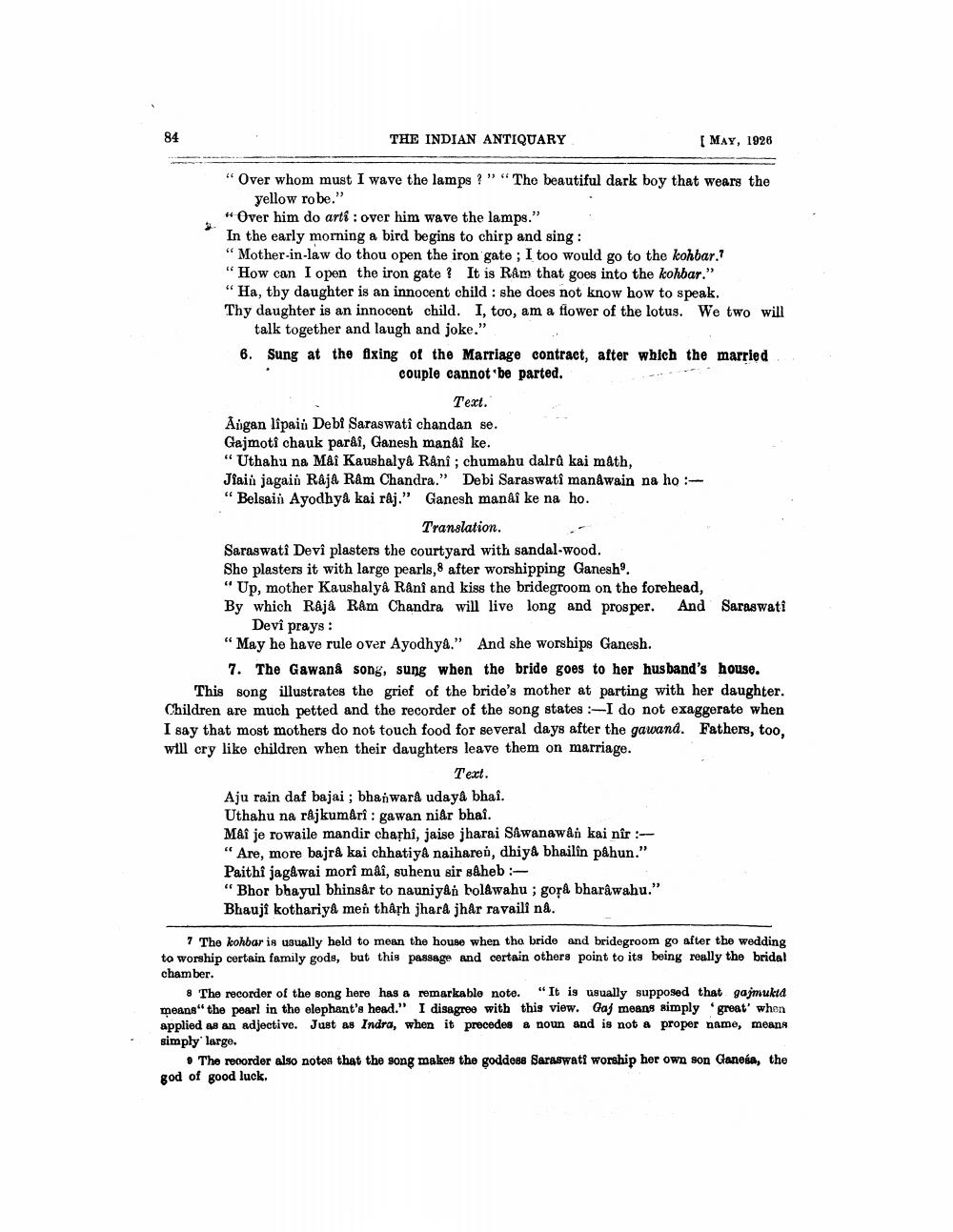________________
THE INDIAN ANTIQUARY
[ MAY, 1926
"Over whom must I wave the lamps ? " " The beautiful dark boy that wears the
yellow ro be." "Over him do artí : over him wave the lamps." In the early morning a bird begins to chirp and sing: "Mother-in-law do thou open the iron gate ; I too would go to the kohbar.? "How can I open the iron gate? It is RÂm that goes into the kohbar." "Ha, thy daughter is an innocent child : she does not know how to speak. Thy daughter is an innocent child. I, too, am a flower of the lotus. We two will
talk together and laugh and joke." 6. Sung at the fixing of the Marriage contract, after which the married
couple cannot be parted,
Text. Angan lipaiú Debi Saraswati chandan se. Gajmoti chauk parki, Ganesh manai ke. "Uthahu na Mai Kaushalya Rani; chumahu dalra kai math, Jiain jagain Raja Ram Chandra." Debi Saraswati mandwain na ho : "Belsain Ayodhyå kai raj." Ganesh mandi ke na ho.
Translation. Saraswati Devi plasters the courtyard with sandal-wood. Sho plasters it with large pearls,& after worshipping Ganesho. "Up, mother Kaushalya Rani and kiss the bridegroom on the forehead, By which Raja Ram Chandra will live long and prosper. And Saraswati
Devî prays : "May he have rule over Ayodhya." And she worships Ganesh.
7. The Gawana song, sung when the bride goes to her husband's house. This song illustrates the grief of the bride's mother at parting with her daughter. Children are much petted and the recorder of the song states :- I do not exaggerate when I say that most mothers do not touch food for several days after the gawand. Fathers, too, will cry like children when their daughters leave them on marriage.
Text. Aju rain daf bajai ; bhanwará udaya bhai. Uthahu na rajkumarî : gawan niår bhai. Mai je rowaile mandir chaphî, jaise jharai Sawanawan kai nir :"Are, more bajra kai chhatiya naiharen, dhiya bhailin påhun." Paithi jagawai mori mai, suhenu sir saheb "Bhor bhayul bhingar to nauniyan boldwahu; gora bharâwahu." Bhauji kothariyê men thaph jhar jhar ravaili na.
7 The kohbar is usually held to mean the house when the bride and bridegroom go after the wedding to worship certain family gods, but this passage and certain others point to its being really the bridal chamber.
8 The recorder of the song here has a remarkablo note. " It is usually supposed that gajmukta means" the pearl in the elephant's head." I disagree with this view. Gay means simply "great' when applied as an adjective. Just as Indra, when it precedes a noun and is not a proper name, means simply large.
The recorder also notes that the song makes the goddess Saraswati worship her own son Ganesa, the god of good luck.




